Erosis
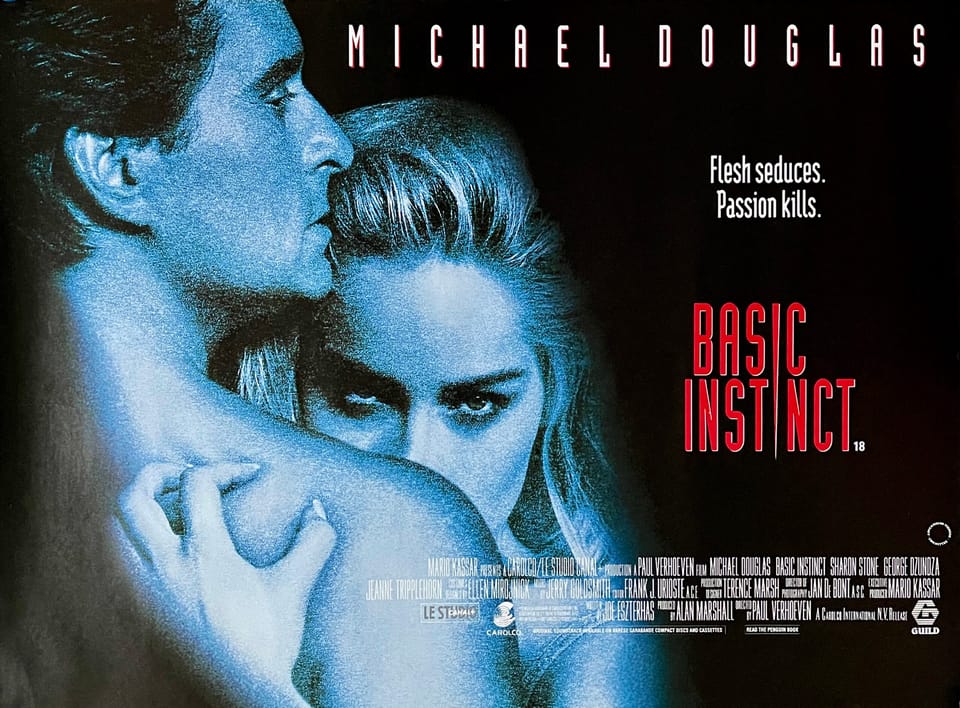
This weekend's new movie is Argylle, about a female author of spy novels who is pursued by a shadowy organization because her novels predict their next steps. Pairing this with another spy comedy seemed too obvious, so instead I chose another movie about a female novelist in trouble because her plots keep coming true.
Thrillers are just bloody farces. The brute mechanics of tension and release, the reversals, the multiple spinning plots that threaten to come crashing down—dramas and romances and horror films deal with emotional spaces that these narrative devices can facilitate, sure, but the devices are the means rather than the end. Narrative convolution is the point of farce. Play everything straight and add a body count, and you get a thriller. Tom Cruise suspended above a laptop in the original Mission: Impossible? Hysterical. The sense that one wrong move could spell disaster, and then seeing if indeed it does, is so exciting that all one can do is laugh in the face of it.
I rehearse all this to point out that there is already an inherent humor to Basic Instinct even before you get to the actual movie, which is not merely funny but finely uncorked camp. The film was controversial and remains so, and not without reason. But it is not nearly as straightforward as its synopsis suggests.
If you take at face value the movie's plot of a cop who's just trying to clean up his act being manipulated and lied to by a bunch of conniving lesbians, you indeed end up in some dark places. That's the Joe Ezsterhas of it all, the thirteen-day scribblings of, to quote Tim Brayton's unimprovable description, "a grubby, miserable little misogynist whose worldview was ordered less as a mother/whore dynamic than a whore/lesbian whore one."
But directors, well, direct their material, and Paul Verhoeven had a particularly bent way of directing his American-made films, cranking them up to eleven so that they're nearly parodies of themselves. Starship Troopers is based on a midcentury speculative sci fi novel that argues full citizenship should only be granted to military veterans, but in Verhoeven's hands it becomes a gorefest too absurd to take seriously, where pretty-faced teenyboppers play soldiers with a cheerfully fascist death drive in a war against giant bugs and Michael Ironside gravely intones, "they sucked his brains out." Basic Instinct doesn't ever tip its hand quite so clearly, but it is extra enough to make one ask, 'seriously?'
There is the explicit sex and violence, of course. (Consider this a content warning, I'll be covering the most notorious aspects of the movie.) The movie opens with Sharon Stone's Catherine Tramell riding a man like a bareback bronco, her hair obscuring her face but not her breasts, yelling and gyrating wildly before reaching for an ice pick and stabbing him in the neck, and then in the eye, and then his body over and over again. It's the kind of sex-and-death juxtaposition one would find in a 1980s slasher where horny teenagers are gruesomely dispatched, yet here the agents of eros and thanatos are one and the same—sexy death. The stab wounds aren't real, but thanks to Rob Bottin's prosthetics, they're spectacular. (The barely-glimpsed eye stab in particular marks it as the work of the man behind Robocop's comic ultraviolence.)
Roger Ebert thought the movie's refusal to leave anything to the imagination was garish and unsexy, that "[t]he sex resembles a violent contact sport, with a scoring system known only to the players." Which is so close to getting it. The desire to tone everything down presupposes that trashy pulp like 'crime novel author kills her victims like her characters' could ever be classed up. Verhoeven rips away that deniability like a bodice and lays bare the neurotic twinned fear and desire of women that the erotic thriller genre is built on.
Verhoeven said as much when he told Sharon Stone that the shot of her uncrossing her legs and showing her vagina to the camera "is what this movie is about." Context is everything, and it must needs be said he spoke this after she confronted him about filming the shot while telling her that her genitals would not be visible, and was using it to tell her why she would not stop it. Deceiving her about the shot is a gross and ugly thing to do, indefensible, and I can't blame anyone who would avoid the movie on principle. In a roundabout way it makes the movie's point: even under the guise of empowered female sexuality, men will still try to find a way to assert control. As Stone goes on to tell it, though, she hated that she was not given a choice in the filming, but now that it was there, Verhoeven was right that it belonged in the movie. There may well be an unspoken power dynamic still at work there—many a woman have had their careers cut short for being "difficult." But it would be a mistake to dismiss the movie, and even the infamous shot and her decision to keep it, out of hand.
It tends to be forgotten even as the moment itself is the most famous part of the film, but Catherine exposes herself as a blatantly manipulative gambit. She is being questioned about the death of the man in the opening, who was killed in the same fashion as one of her books. She won't admit she did it, but she won't play along with the police either and play the shrinking violet. With predatory condescension she all but dares them to charge her. The men interrogating her know she's guilty, she knows that they know, and she wants them to know that she knows that they know and that they won't do anything about it because their sex drive, their basic instinct if you will, will override any logical thought.
Exhibit A in this argument is the film's protagonist, Detective Nick Curran. The character as written is already a louse: a nominally sober trigger-happy Cop On The Edge who violently asserts himself in the face of his disempowerment by various women and bureaucrats. Michael Douglas plays Nick with bug-eyed derangement, leaning into every aggressive bit of posturing available him, and Verhoeven does nothing to soften him or make him remotely sympathetic. There is, for sure, an inherent identification that occurs between an audience and a protagonist, and the risk of centering a monster is that the worst people in the world will miss the point and have themselves a new hero. Michael Douglas had even played one such character already. But Nick is deeply unpleasant and his headspace is not one many people would want to inhabit. For them the movie offers an out by constantly undercutting his sweaty paranoia.
All throughout the movie are little grace notes that give it that camp touch of "too much." Cinematographer Jan de Bont's dual lighting scheme casts Nick and the police force as often as possible in lines and grids of shadow, emphasizing the play of light and darkness across his character, while the scenes with Catherine often have a 'swimming pool reflection' effect that, especially in a car scene with rain falling on the windshield, makes her, and often Nick too, look like lizard people. Jerry Goldsmith's wonderful theme has a playfully slinky chromactic woodwind run that's answered with icy strings that spike like a horror film in moments of tension or violence. Incongruous costuming and props too are used to puncture the seriousness; at one point Nick meets his partner Gus in a diner for an Important Talk, but the diner is western-themed and Gus is in full cowboy regalia that goes largely unremarked upon except that Nick takes his cowboy hat, a masculinity costume piece. Nick's psychiatrist and sometime lover Beth (Jeanne Tripplehorn) has a keychain that becomes important later on and needs to be easily recognizable, and so of course it's of Bart Simpson, most recognized for telling people, "Don't have a cow, man."
And sure, this is easier said than done. Beth features in the movie's other most notorious scene, where Nick, having just been humiliated by Catherine and belittled by his internal affairs investigator, goes with Beth to her apartment to have sex. It very quickly becomes rough and nonconsensual, essentially rape. It is easily Nick's and the movie's ugliest moment. But throughout this scene the neighboring building is visible through the living room window, and in it is, clearly and distractibly, a group exercise class. Their unified squats and jumping jacks are inherently funny, just as Nick's sexual violence is inherently awful, and the juxtaposition of the two short-circuits a straightforward reaction to the scene. Verhoeven would do something similar in the opening of Elle, which trains its camera not on the act of sexual assault being committed but on the disinterested housecat watching it unfold. The point in both of these is not to treat rape as a joke; rather it is to keep it from being treated as shorthand, as something to indicate seriousness without any thought. The narrative logic of the scene is that Nick is being corrupted by Catherine, but there's no reason to accept that as given, and the presence of bobbing athletes makes it that much harder to do so.
The biggest indication that we're supposed to have some fun with this is Miss Tramell herself. Sharon Stone is very clearly having a blast, playing the character with the amusement of a cat that ate the canary. Catherine (the cat herein?) is not just in control at all times due to her sex; she gets that control by playing on Nick's bottomless sigma male fear of being cucked, his need to prove that he won't let a woman, a polyamorous bisexual lesbian, get the better of him. And so he is putty in Catherine's hands; she manipulates him into her bed, letting him first think he's going to catch his prey, then that it's gotten away, and then that he has won and gets his prize, to "fuck like minks, raise rugrats, and live happily ever after." She doesn't kill him, not that we see, but we see all too clearly at movie's end who has the power, even if he doesn't. This is indeed the hoary, whorey, age-old story told of powerful women: the black widow, spinning webs, spinning lies, and ensnaring hapless men. But strip away the cultural baggage, and which of these two characters do we like more? Who is more enjoyable to watch? Who still lingers in the cultural memory, more than three decades removed from the film's premiere? If Nick is the victim of a witch hunt, it's only in the sense that the witch is hunting him.
As for the film's depiction of lesbianism and bisexuality: I'm not going to say it's empowering exactly. Catherine's girlfriend Roxy (Lailani Sarelle) becomes psychotically jealous and tries to kill Nick, and Beth and her college relationship with Catherine is used to offer her as a suspect in the investigation. Yet Catherine's reaction to Roxy's death is the one moment of actual human grief in the movie—which makes it suspect considering the character, but also in turn is another example of Verhoeven disrupting normal emotional responses. Catherine has another friend and possible lover, an older woman named Hazel (Dorothy Malone), who murdered her husband and kids. A monstrous act, but Hazel is also disarmingly sweet, and so too is Catherine's doting treatment of her. It's possible the audience is meant to gawk and laugh at all this, but in contrast to lawman Nick's persistent dourness, the three women, especially prior to Nick's arrival, are living up their otherization: be gay, do crime.
Inevitably a lot of what a person gets out of a movie like Basic Instinct is what they bring into it. On a surface level it tells the story of a man-eater, and all that matters is whether or not you think that is a true story. But look a little deeper, and it becomes much more about the kind of men who tell themselves that story. Nick Curran is a ridiculous person who takes himself very seriously. He thinks he's outsmarted Catherine Trammel, but this is a Paul Verhoeven movie, we know the score. She fucked his brains out.
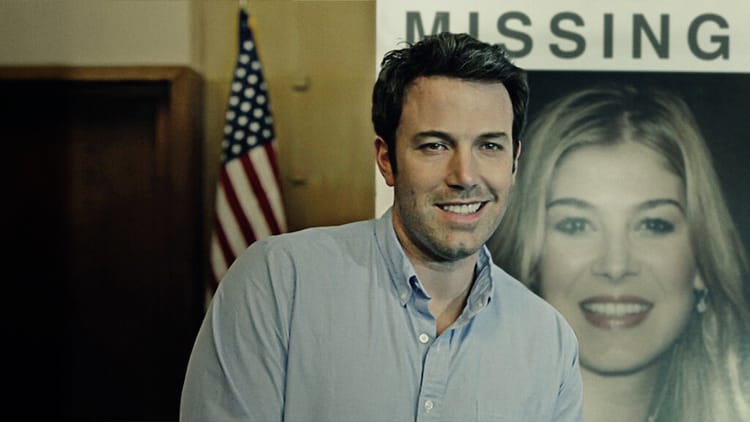
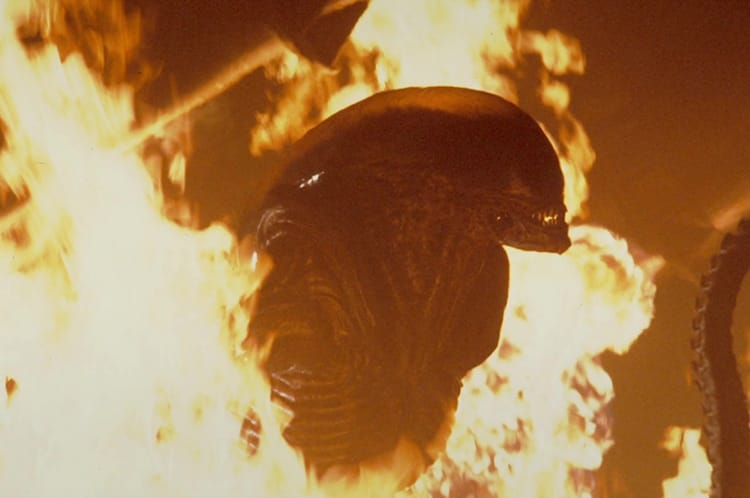
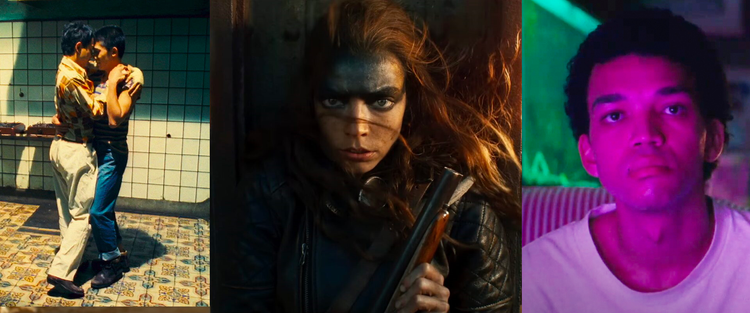
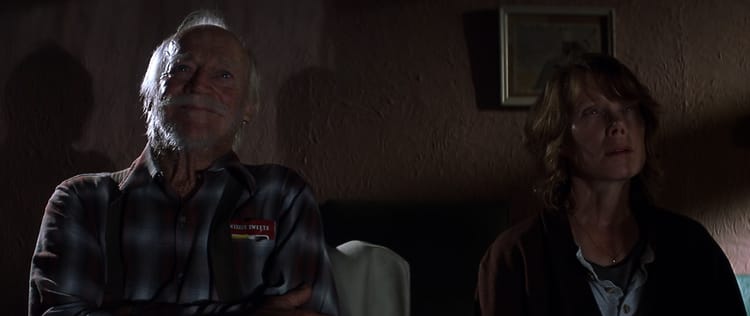
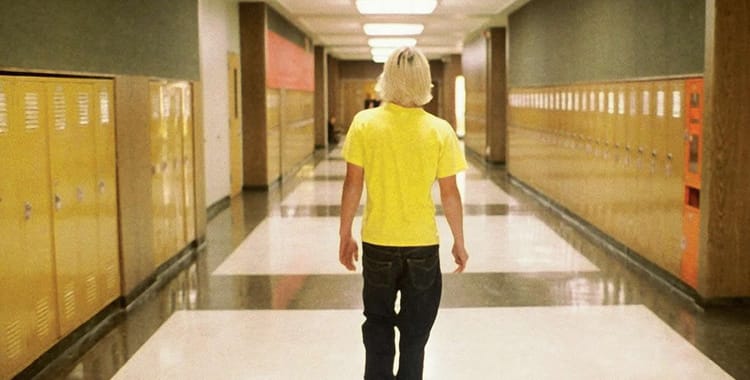
Member discussion